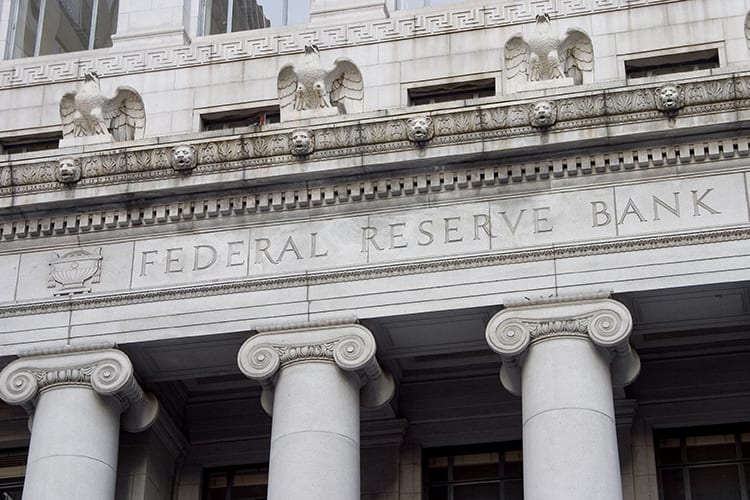Predicting the Fed’s leanings
 Federal Reserve policymakers are among the best informed and most knowledgeable experts on the economy, and their decisions on interest rates are supposed to be based on exhaustive analysis of data. But Prof. Ulrike Malmendier believes something else may also be at work: the personal experiences with inflation that Fed decision makers have had over their lifetimes.
Federal Reserve policymakers are among the best informed and most knowledgeable experts on the economy, and their decisions on interest rates are supposed to be based on exhaustive analysis of data. But Prof. Ulrike Malmendier believes something else may also be at work: the personal experiences with inflation that Fed decision makers have had over their lifetimes.
In a working paper co-authored with Stefan Nagel of the University of Chicago and Zhen Yan of the University of Michigan, “The Making of Hawks and Doves,” Malmendier offers evidence that Fed policymakers’ lifetime experiences with rising prices help shape their projections of future inflation and influence their votes on monetary policy.
If they lived as adults through periods of high inflation, such as the 1970s, they tend to be much more leery of runaway prices than if they came of age during later decades, when inflation was largely under control. In short, lifetime inflation experience is important in determining whether members of the Fed’s policy body, the Federal Open Market Committee (FOMC), are “hawks” or “doves”—that is, whether they emphasize keeping prices in check or fostering economic growth and employment.
Interest rate targets—the Fed’s most important policy decisions—have often strayed from levels suggested by Fed staff and tilted toward subjective forecasts.
This contrasts with standard economic analysis, which holds that FOMC members’ inflation expectations and votes on policy reflect objective information on how the economy is performing. If that were the case, though, each FOMC member would take the same policy position, since all of them have access to the same information. “We’re trying to understand why these experts have very different views,” Malmendier explains.
Malmendier and her co-authors implemented a new model of experience-based learning, which holds that Fed policymakers forecast inflation based on how prices have behaved up to the time of an FOMC meeting. The researchers created an econometric model that incorporates lifetime inflation experience to forecast each FOMC member’s voting behavior. They controlled for changing attitudes by age, political party affiliation, and academic background in economics.
When the authors compared their experience-based forecasts with members’ actual voting behavior from March 1951 to January 2014, they found that those with more inflation experience were more likely to have hawkish voting patterns. The effect was striking: An FOMC member who had an above-average experience with inflation was one-third more likely to take a hawkish stance that went against the committee majority, and also one-third less likely to take a dovish stance.
Perhaps most striking was that FOMC members’ personal experiences with inflation have been a key determinant of Fed policy. Specifically, the interest rate targets set at FOMC meetings—the Fed’s most important policy decisions—have often strayed from levels suggested by Fed staff and tilted toward the subjective forecasts of FOMC members.
Malmendier and her co-authors estimate that, throughout most of the 2000s, the Fed’s interest rate targets would have been 0.5 to 1 percentage point lower if policy had been based exclusively on staff forecasts.
In other words, age matters when choosing Fed policymakers: Experience of inflation differs largely according to birth year.
“Our results add a twist to the practical notion that the choice of a policymaker can have a long-lasting impact on policy outcomes,” the paper concludes. “To predict a policymaker’s leanings, it is helpful to look at the person’s prior lifetime experiences.”